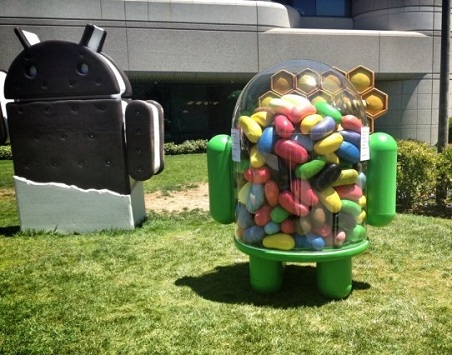
Jelly Bean closes in on Ice Cream Sandwich
Jelly Bean may be the newest sweet in the family, but it is steadily gaining ground against its older brothers. Combined, Android 4.1 and Android 4.2 reached a 25 percent distribution level in the green droid realm, based on the number of devices accessing Google Play during the 14 days ending April 2.
Starting this month, Google has decided to alter how the data is collected. Google says: "Beginning in April, 2013, these charts are now built using data collected from each device when the user visits the Google Play Store. Previously, the data was collected when the device simply checked-in to Google servers". Why? Because the company considers the new collection method to be more accurate and that it best represents "users who are most engaged in the Android and Google Play ecosystem".
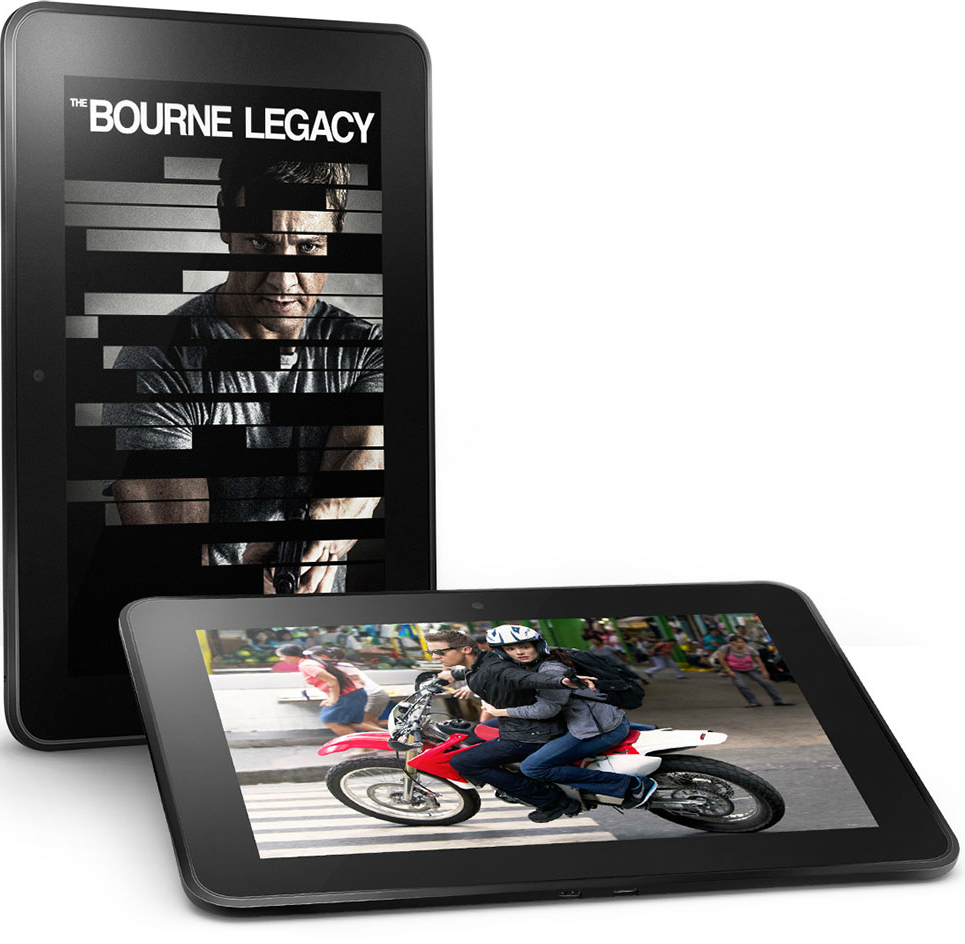
It's no joke! $249 Amazon Kindle Fire HD 8.9" 4G LTE from AT&T
Starting April 5, AT&T will carry one model of Amazon's tablet in stores, with $150 discount for those customers making a two-year contractual commitment. Just as T-Mobile tries to free Americans from subsidies, the nation's second-largest carrier reels them back in. The 32GB Kindle Fire 8.9" 4G LTE will sell for $399 without commitment -- $249 with one. The higher of the two prices reflects Amazon's recent $100 reduction, just 18 days ago.
Subsidized pricing makes Amazon's tablet one of the most-affordable mid-size models available. For example, Apple's 7.9-inch iPad mini starts at $329 and $459 with LTE. However, for comparable storage (32GB), iPad mini is $559 with LTE. Those prices require no contract. Something else to consider: Unless Amazon and AT&T have some special agreement that I don't know about, that $249 or $399 includes advertisements -- "special offers" -- that buyers must pay an extra $15 to remove. Still, $249 out the door makes Kindle Fire HD 8.9" the lowest-priced tablet for sale with super high-resolution display.
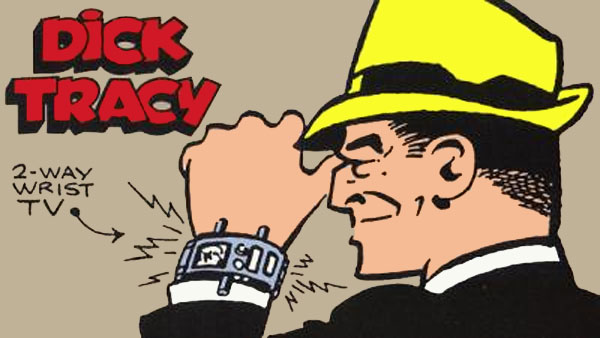
I'm a gadget lover who doesn't like smartwatches
If you're the sort of person that wants to wear a smartwatch every day, then I'm sorry but we can't be friends. I should likely be polite and say the same overused line, "It's not you, it's me", but frankly I don't care for such folks to tell a blatant lie. I'm the sort of person that loves gadgets so much that I can't get enough of them at least 10 hours a day, but I draw the line at wearing one on the wrist. I'm a gadget lover who doesn't like smartwatches.
I'm not a fool nor reject the idea. I understand why someone would want to wear a smartwatch, but only on a certain occasion. I certainly wouldn't take anything but a beater climbing, hiking, playing sports, running and so on. A smartwatch might be useful there, without having the fear of scratching or ruining an expensive timepiece. But aren't there better tools for the job? And, in real-life, a smartwatch makes even less sense as it's not a replacement for anything, really, not even a real watch.

Google Translate for Android speaks your language, even while offline
¡Hola! Many of us use Google Translate, some on a daily basis. For instance, I follow a few blogs in Reader (a moment of silence please) that are published in languages that are foreign to me. For the most part it works well, but can also lead to some rather amusing results. Now you can get those same laughs from your Android phone, even when you are offline.
Today Google's product manager Minqi Jiang announces that the search giant and mobile operating system developer is "launching offline language packages for Google Translate on Android (2.3 and above) with support for 50 languages, from French and Spanish to Chinese and Arabic".

PC apocalypse: Emerging market buyers move from smartphones to tablets
IDC continues to send smoke signals that a blistering fire rages across the planet, sure to scorch the earth where PC manufacturers hoped to plant new computer sales. Emerging markets are engulfed in a blaze of smartphone and tablet adoption that leaves little hope for a desktop or notebook revival. I simply cannot overstate the speed this thing moves.
Eight days ago, the analyst firm revised downward PC shipment forecast for 2013, singling out changing buying patterns among emerging markets. Today IDC reaffirmed the forecast, while releasing final full-year 2012 PC, smartphone and tablet shipments. The data is grim pickings.
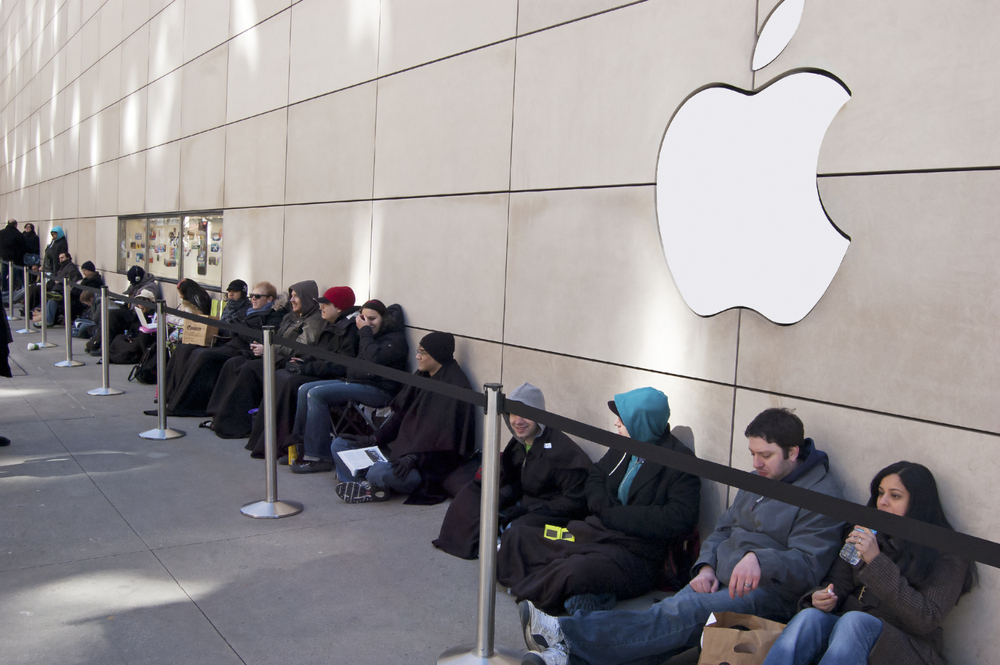
Post-PC era is REAL for U.S. Apple users
Today, comScore started a new service that ranks the top U.S. websites by desktop and mobile views -- the latter is a new measurement. Some of them really pop off the chart, with Apple glaring among traditional companies. More than one-third of unique visitors in February accessed the site via mobile device-only. That compares to 5 percent for Microsoft properties. Analysts, bloggers and journalists often portray the fruit-logo company as best representative of the so-called Post-PC era, and Windows' maker the epoch in decline.
The numbers aren't shocking, if you think about them. Windows has little presence on smartphones or tablets. Microsoft mobile OS smartphones share was just 3 percent during fourth quarter, according to Gartner. IDC forecasts Windows tablet market share, based on unit shipments, will be less than 5 percent this year. By comparison, iOS has greater reach, with, according to the company, cumulative shipments exceeding 500 million. Hell, Apple sold 43.5 million iPhones just in Q4, according to Gartner.
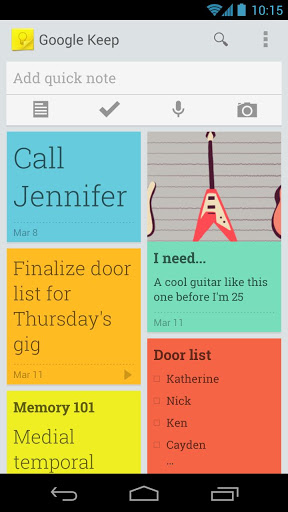
Google Keep -- for notes, memos and ideas best kept in the cloud
Confession: I've never used Evernote, much to the abash of colleague Alan Buckingham (or so he expressed in group chat a little while ago). But I would use Google Keep, which released today. Russell Holly calls Keep "the not-quite Evernote clone" -- for anyone making bold comparisons.
You tell me. Does this sound familiar, Evernote and OneNote users? "With Keep you can quickly jot ideas down when you think of them and even include checklists and photos to keep track of what’s important to you", Katherine Kuan, Google software engineer, says. "Your notes are safely stored in Google Drive and synced to all your devices so you can always have them at hand". She adds: "If it’s more convenient to speak than to type that’s fine -- Keep transcribes voice memos for you automatically. There’s super-fast search to find what you’re looking for and when you’re finished with a note you can archive or delete it".
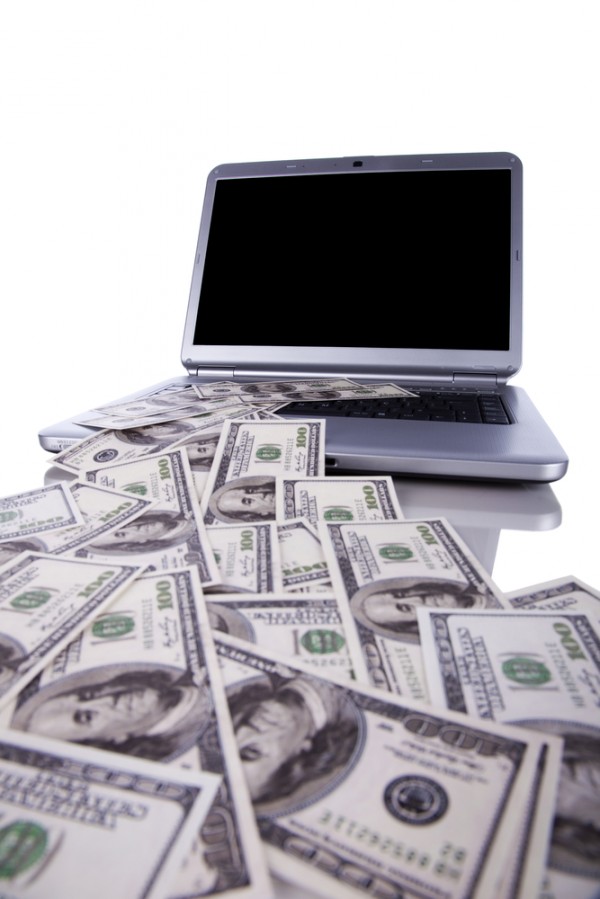
Goodbye Yellow Brick Road, SMBs plan to spend much more on tablets than PCs
Keeping with our ongoing "Ding, Dong, the PC's dead" theme, NPD reports that businesses with 50 to 999 employees will spend more on technology this year. That's good news for PC manufacturers but much, much better for anyone selling tablets -- or the ecosystem supporting them. SMBs are suddenly a bright light cast against vast darkness. Yesterday, IDC warned that PC shipments would fall double-digits during first quarter.
Somebody is buying, at least. Thirty percent of SMBs surveyed by NPD plan to increase PC spending -- that's up from 22 percent just three months ago. Woot! Woot! "PCs are still a core part of the technology arsenal of the typical U.S. corporate employee and a regular rotation of new and upgraded equipment is part of best practices for most mid-sized U.S. businesses", Stephen Baker, NPD's vice president of industry analysis, says.
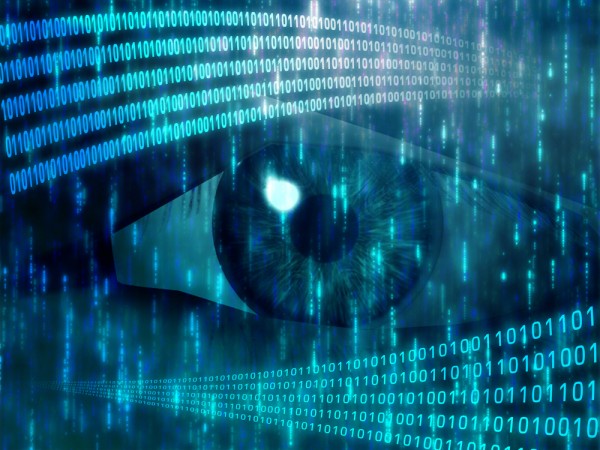
BlackBerry wants to fortify Android and iOS devices with Secure Work Space
On Thursday, Canadian smartphone maker BlackBerry announced plans to secure Android and iOS devices with Secure Work Space for BlackBerry Enterprise Service 10. The company cites evolving needs and "ever-growing variety of devices" that are used within the work space as the main reason for stepping up to fortify the security of the two mobile operating systems.
BlackBerry targets both smartphones and tablets running Android and iOS through data-at-rest and data-in-transit security capabilities. The company says that administrators will be able to create a "separate and secure work space" which contains corporate apps, calendar, contacts, web email and other features, and configure, interact, secure and wipe the new compatible devices.
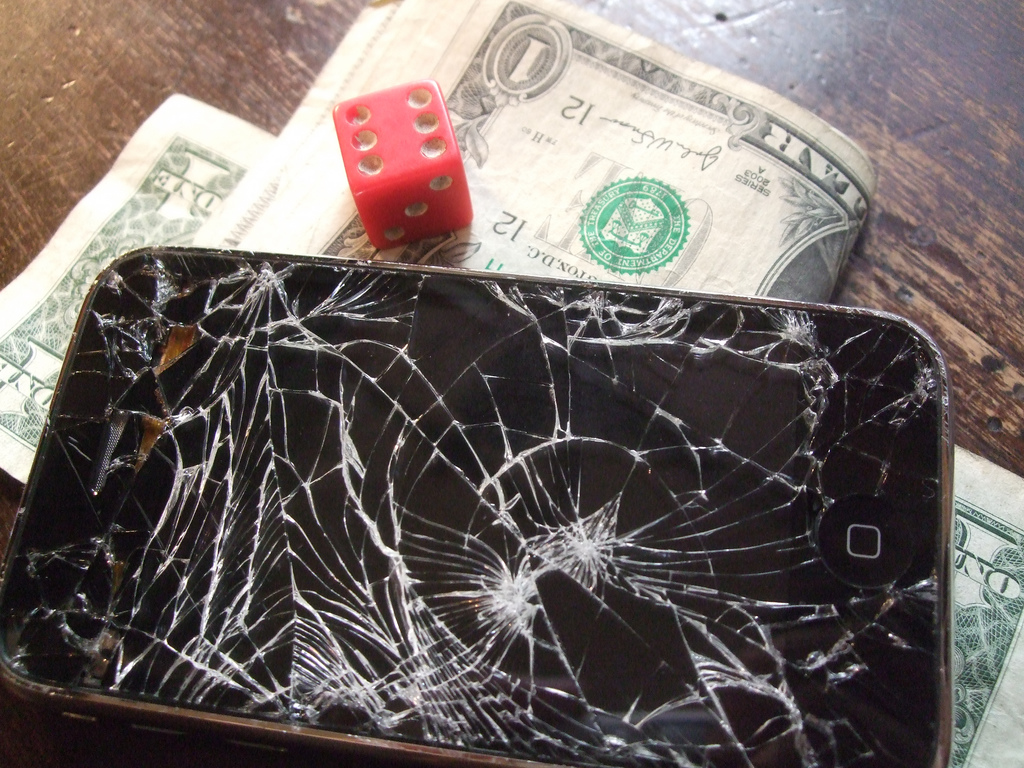
How pathetic Apple has become
Phil Schiller's preemptive attack against Samsung's Galaxy S IV, which launches later today, says everything you need to hear about the sorry state of Apple. I'm stunned, because the marketing chief sounds too much like Microsoft CEO Steve Ballmer in 2007, when he dismissed iPhone. Denial is the surest sign a company has lost its way, and I don't just mean some executive denying such-and-such product or competitor is any good as distracting marketing ploy. The worst, and Schiller gives it, is corporate denial -- the proverbial ostrich with head in the sand -- about the world around.
Last night, I saw Schiller quoted in the Wall Street Journal. This morning I see posts from Bloomberg and Reuters, too, and a raff of tech blogs and news stories -- largely quoting one of the more mainstream services. The Journal calls Schiller's Android attack a "rare interview". But I see something else: Desperation. Denial. What's missing means much more: The typical leaks and rumors about Apple's next thing that steals the thunder from a competitor. Apple has nothing to show, and the InterWebs are less embracing of rumors. How pathetic is that?

Android and iOS are neck-and-neck in two-horse tablet platform race
In December, I warned: "You can't trust IDC's 2016 tablet forecast, or any other". That's because the analysts revise predictions every couple months. Well, lookyloo. The firm dropped a new forecast late yesterday, and like every other Android gives iOS another beating. I say, "Perhaps".
The great soothsayers now see Android tablet shipment share rising above iOS for all 2013, a feat already claimed individually for third and fourth quarters. IDC sees the green robot at 48.8 percent share to 46 percent for the fruit-logo. Don't believe it. The market is too volatile and IDC, along with all its competitors, has yet to make accurate predictions. Anything can happen, including an unexpected surge of Windows tablets.
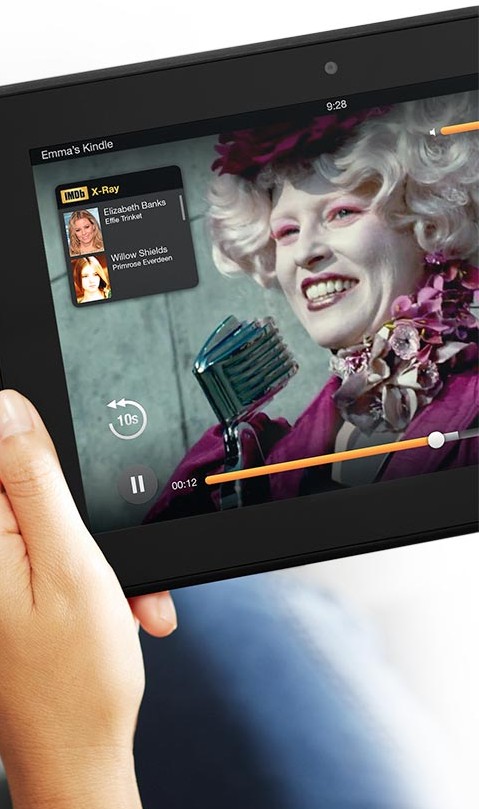
Amazon cuts Kindle Fire HD prices by as much as $100
For tablets, 2013 is the year of small form factors -- and, presumably, lower prices. Amazon isn't waiting to see, and that's a good strategy considering Kindle HD might not be the device Goldilocks is searching for. Unlike the fairy tale where one is too big or two small, Amazon's tablet may not be just right. Proactive price reduction could change that.
Here's the problem: Several analyst firms now predict that slates with 7-7.9-inch screens will command the market, which puts 8.9-inch Kindle Fire HD a wee bit on the plump side. "One in every two tablets shipped this quarter was below 8 inches in screen size", Jitesh Ubrani, IDC research analyst, says. "In terms of shipments, we expect smaller tablets to continue growing in 2013 and beyond".
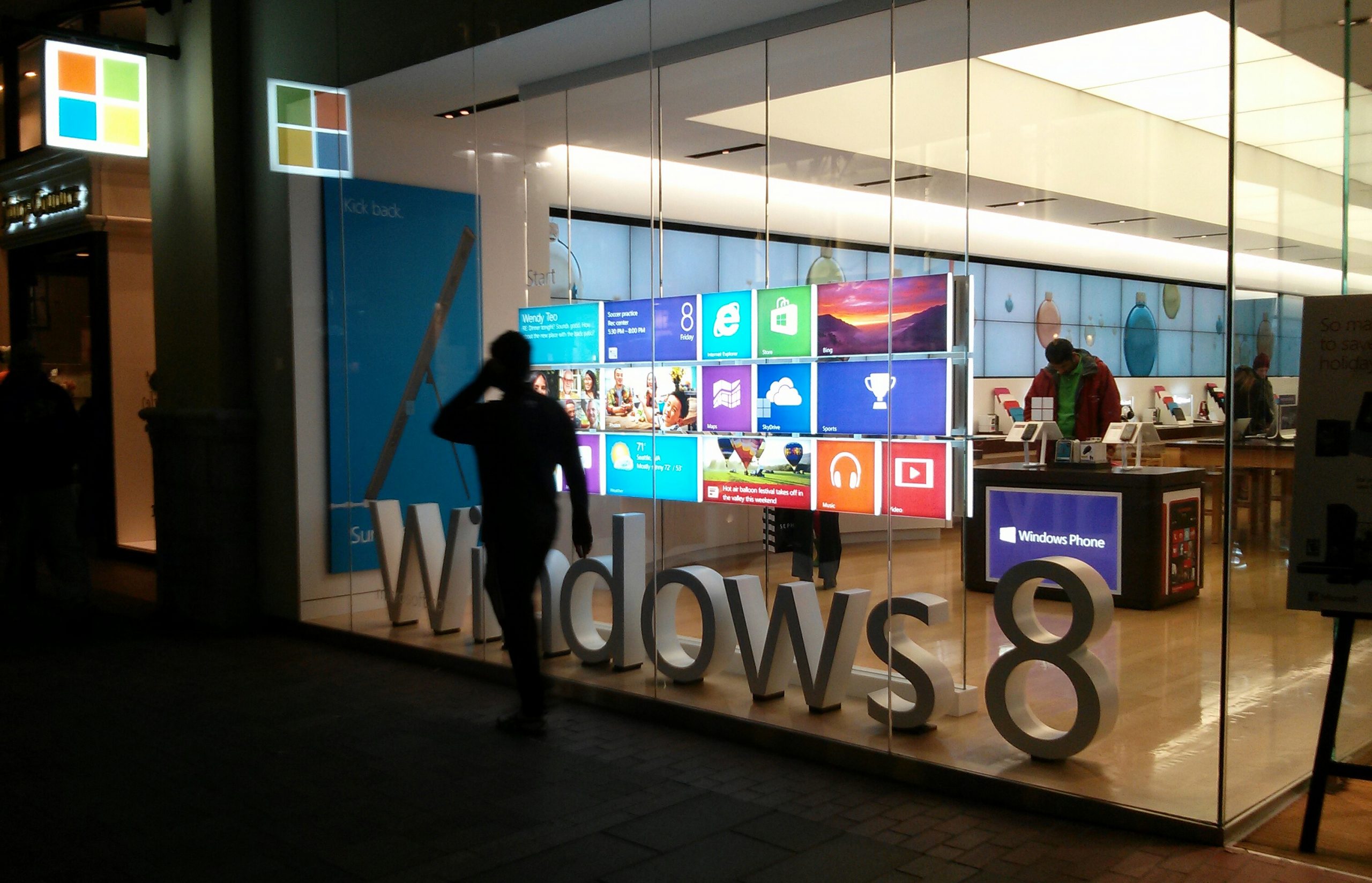
Is Windows 8 as bad as Vista, or even worse?
That's the question on my mind today, as an executive from yet another PC manufacturer disses the operating system. Yesterday, Jun Dong-soo, who heads Samsung’s memory chip operation, told Korea Times: "Windows 8 system is no better than the previous Windows Vista platform". Remember, Microsoft gave developers Samsung slates in autumn 2008 to test Windows 8. Samsung shipped touchscreen models for the previous operating system, when few other OEMs did. So the slap is no small one, and worse: "MS’s rollout of its Windows Surface tablet is seeing lackluster demand", Dong-soo asserts.
I don't agree with him, by the way. On Monday I explained: "How I came to love Windows again". Two words: Surface Pro. I find Windows 8 to be remarkably efficient and fun to use on the touchscreen tablet convertible. Modern UI really is modern, trendsetting. But I'll be first to concede that users won't get the same kind of experience using just mouse and keyboard. Touch changes everything.
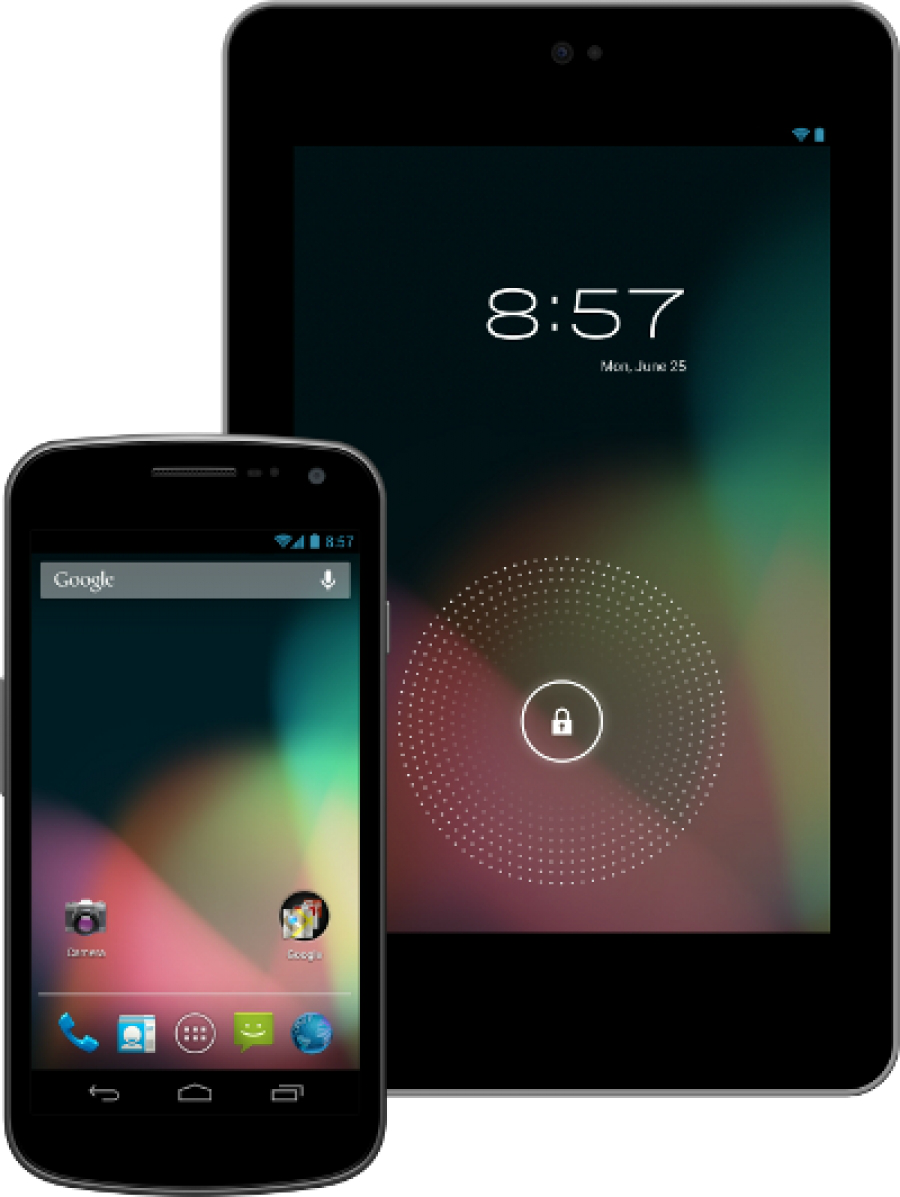
Is Android 4.2 killing your Nexus' battery life?
My joy at receiving Nexus 7 32GB HSPA as a day-after-Christmas present turned to deep disappointment just two weeks later. Google replaced the device, and a second runs down the battery in about 15 hours, whether sitting idle or actively used. Near as I can tell, and others share my problem, Android 4.2 is root problem. My woes with the replacement tablet started with the point-two update, while others suffering similar misery report troubles with 4.2.1. Google really needs to fix this problem. Fast.
I wasted many hours troubleshooting. The prescribed fix is restore and reset, which I've done about a half-dozen times. No change. Perhaps the cellular radio drains the battery fast. I removed the SIM. No change. Maybe one of my apps keeps Nexus 7 from going idle. I restored and set up with my wife's Google account. No change. The battery app consistently lists the "screen" as top consumer, which suggests something prevents the tablet from going idle. Last night, I charged up. Nine hours and thirty-minutes later, there is 45 percent charge. At that rate, I'll set a new record: 16 -- maybe even 17 -- hours to zero. What a lucky day this is.
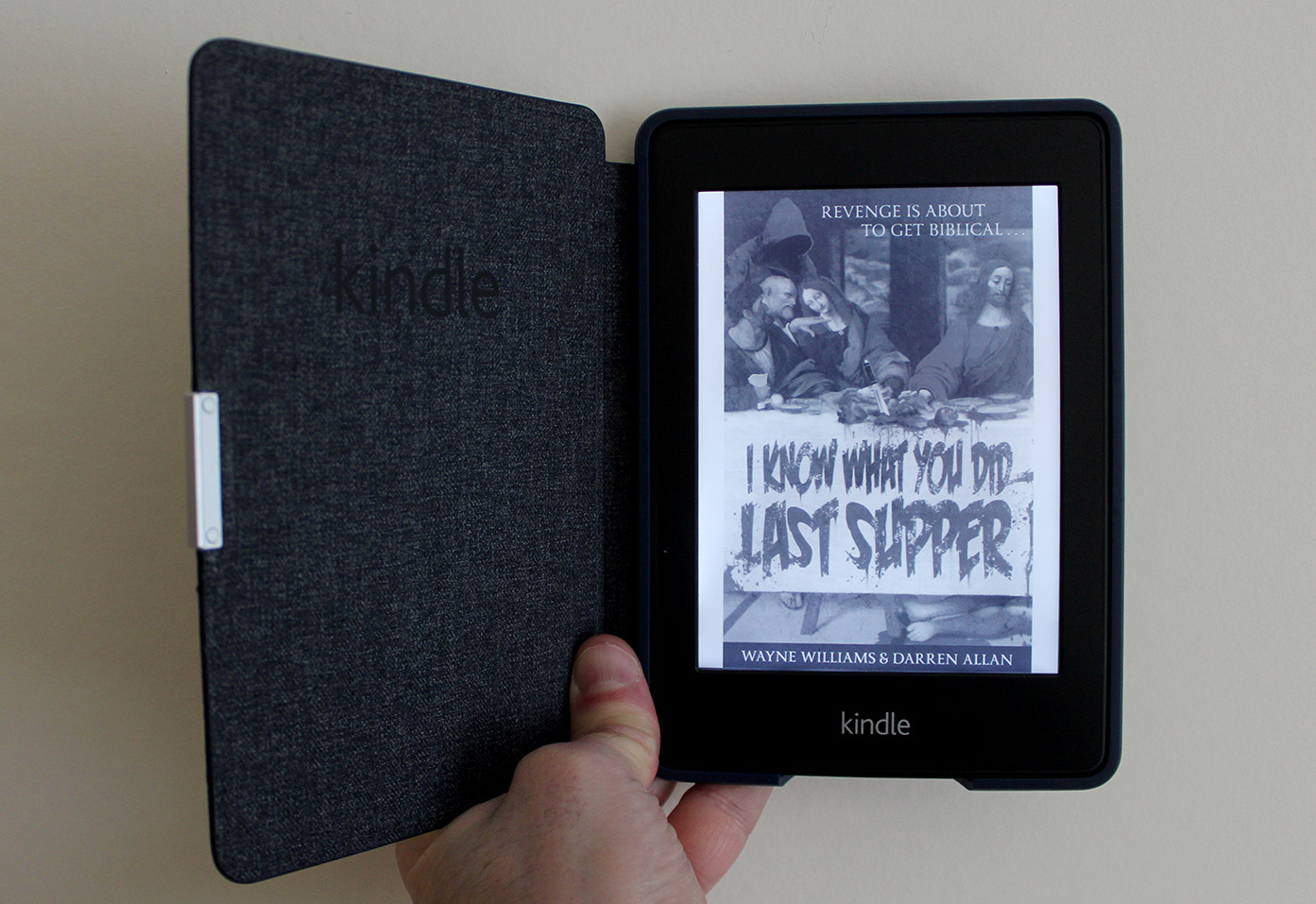
Kindle Paperwhite is my new favorite gadget [Review]
When I wrote Why I Love Kindle back in February I said I was intending to upgrade to a Kindle Paperwhite soon. Three weeks later, timed so I can buy a Kindle copy of my own book (my publisher only supplies free paperbacks), and that’s exactly what I’ve done.
The Kindle is one of those very rare devices that you don’t really need to upgrade. New features, an improved screen, touch support – it’s all well and good, but when you’re reading something you’re pretty oblivious to anything other than the words on the page. Or rather the screen. That said, moving to the Paperwhite from a second generation Kindle is a huge leap forward.
